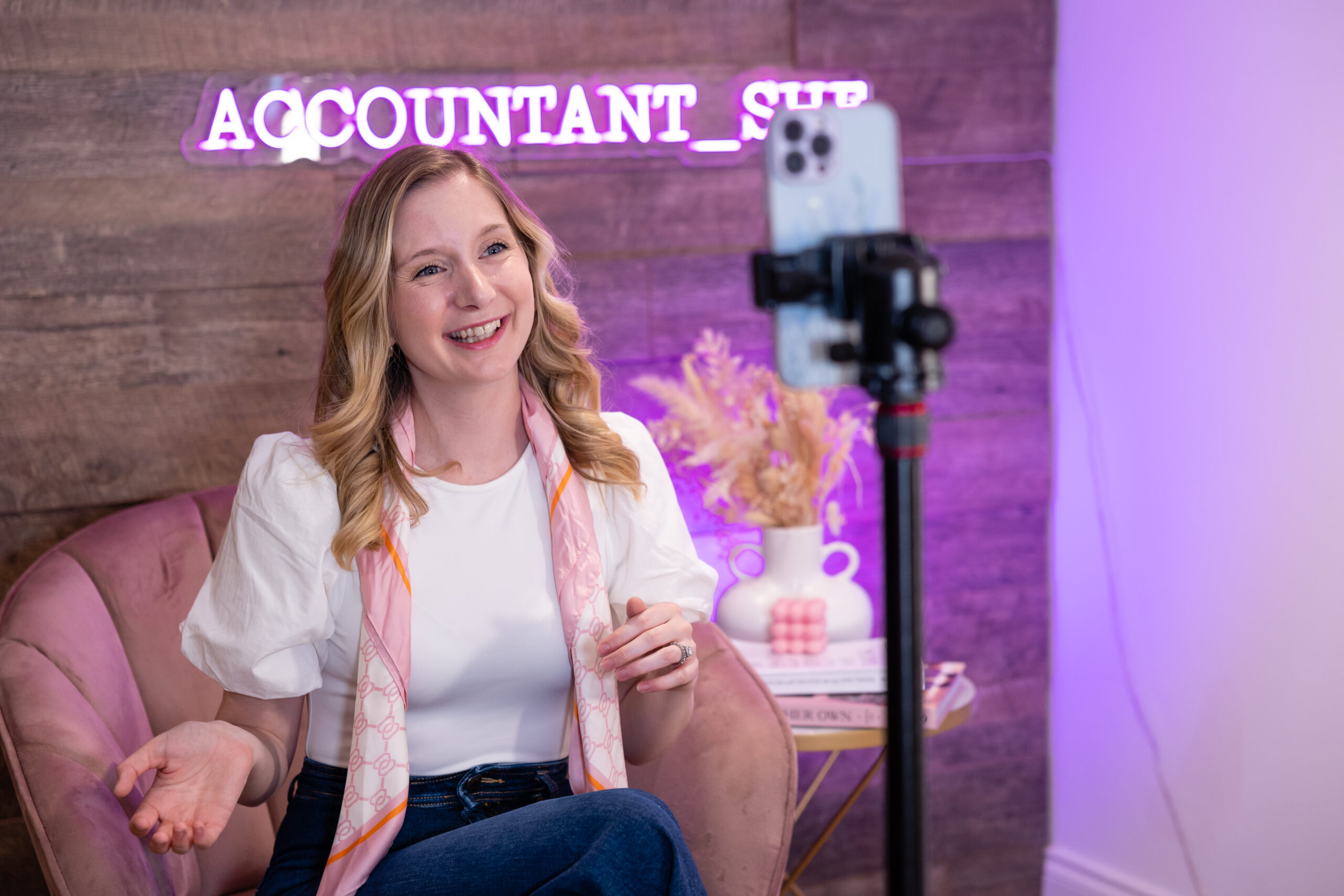Influencer marketing has exploded in recent years, creating a brand-new generation of digital entrepreneurs. But while the content creation industry is booming, most influencers still feel overwhelmed when it comes to understanding their finances. Whether you’re a YouTuber, TikToker, Instagram creator, or full-time UGC producer, one thing’s for sure: if you’re making money online, you need to get to grips with your tax responsibilities.
In this blog, we’ll walk through the essentials of accounting for influencers. You’ll learn what income you need to declare, which expenses are allowable, and what support is available to make the whole process feel less stressful. We’ll also show you where to get clear answers about HMRC rules for influencers and how to stay compliant without drowning in spreadsheets.
Why influencers need to think like business owners
The moment you earn money from your content, you become a business in the eyes of HMRC. That means:
You must register with HMRC as self-employed or as a limited company.
You need to keep accurate records of income and expenses.
You are responsible for paying tax and National Insurance.
While many influencers start out with gifted products or small collabs, once you hit the threshold of earning over £1,000 per year from content creation, you’re officially trading. This makes accounting not just important, but legally required.

Understanding your income as an influencer
Most influencers have more than one income stream. These may include:
Paid brand deals and sponsorships
Affiliate links and commission payments
UGC campaigns for other brands
Ad revenue (e.g., from YouTube or TikTok Creator Fund)
Digital product sales (eBooks, presets, templates)
Event appearances or speaking engagements
Every form of income must be recorded and reported to HMRC. That includes any payments received in-kind (like free clothing or gifted products) where there’s an obligation to post in return. Yes, freebies can count as taxable income.
Example:
If a fashion brand sends you a coat worth £300 and requires a Reel in return, that coat is considered income and must be declared.
What influencer expenses can you claim?
This is where it gets exciting (and complex). Influencers can deduct certain business expenses to reduce their tax bill. These expenses must be wholly and exclusively for business use.
Examples of allowable expenses:
Camera, tripod, lighting, phone and editing equipment
Editing software and subscriptions (e.g., Adobe Suite, Canva Pro)
Props and decor used exclusively for content, not for general home use
Studio hire or workspace costs
Website domain and hosting
Travel for business purposes (to shoots, events, meetings)

Part-business, part-personal?
If something is used for both business and personal reasons (like your mobile phone or broadband), you can claim the business-use proportion. Be realistic and consistent.

What can I claim as an Influencer?
There’s a lot of noise online about what you can and can’t claim—but very little clear guidance. That’s exactly why we created the Allowable Expense Queries for Influencers guide. You’ll get instant access to expert advice tailored to content creators.
What about clothing, makeup and beauty treatments?
This is one of the most common grey areas in influencer accounting. HMRC is very strict about expenses that have a dual purpose (i.e., both personal and business benefit).
In most cases:
Everyday clothing and makeup are not allowable.
Costume or stage wear may be claimable if not suitable for everyday use.
Beauty treatments are usually disallowed, even if they help you “stay camera ready.”
We break all of this down further in our guide: Allowable Expense Queries for Influencers. It’s designed to answer your specific expense-related questions, with practical examples and case studies from real content creators.
Do influencers need an accountant?
While it’s possible to file your own tax return, working with an accountant who understands the influencer space can save time, money, and stress. At striveX®, we work with hundreds of content creators, influencers, and UGC producers across the UK. We help with:
Registering as a sole trader or limited company
Setting up your accounting software
Tracking income from multiple platforms
Understanding allowable expenses
Filing tax returns and staying compliant
If your content business is growing fast or you’re landing regular brand deals, having an accountant who gets the influencer world can make a huge difference — in time saved and money kept.

Work with Strivex today
If you’re ready to take your content creation seriously and build a sustainable, compliant business around it, we’re here to help.
At striveX®, we specialise in supporting digital entrepreneurs like you. Whether you’re just getting started or scaling your influencer business to six figures and beyond, we provide:
Expert financial advice tailored to creators
Support with limited company setup and tax planning
Bookkeeping, VAT, payroll and Corporation Tax filing
Should you register as a limited company?
Going limited can reduce your tax bill, give you more credibility with brands, and protect your personal assets. But it also comes with added responsibilities like payroll, annual accounts, and Corporation Tax.
You can find out more about the differences, and how to incorporate, here.
Tips to stay financially organised
Open a separate business bank account
Use accounting software like Xero or FreeAgent
Keep digital copies of receipts and invoices
Track all income, even gifted products
Schedule regular check-ins with your accountant


